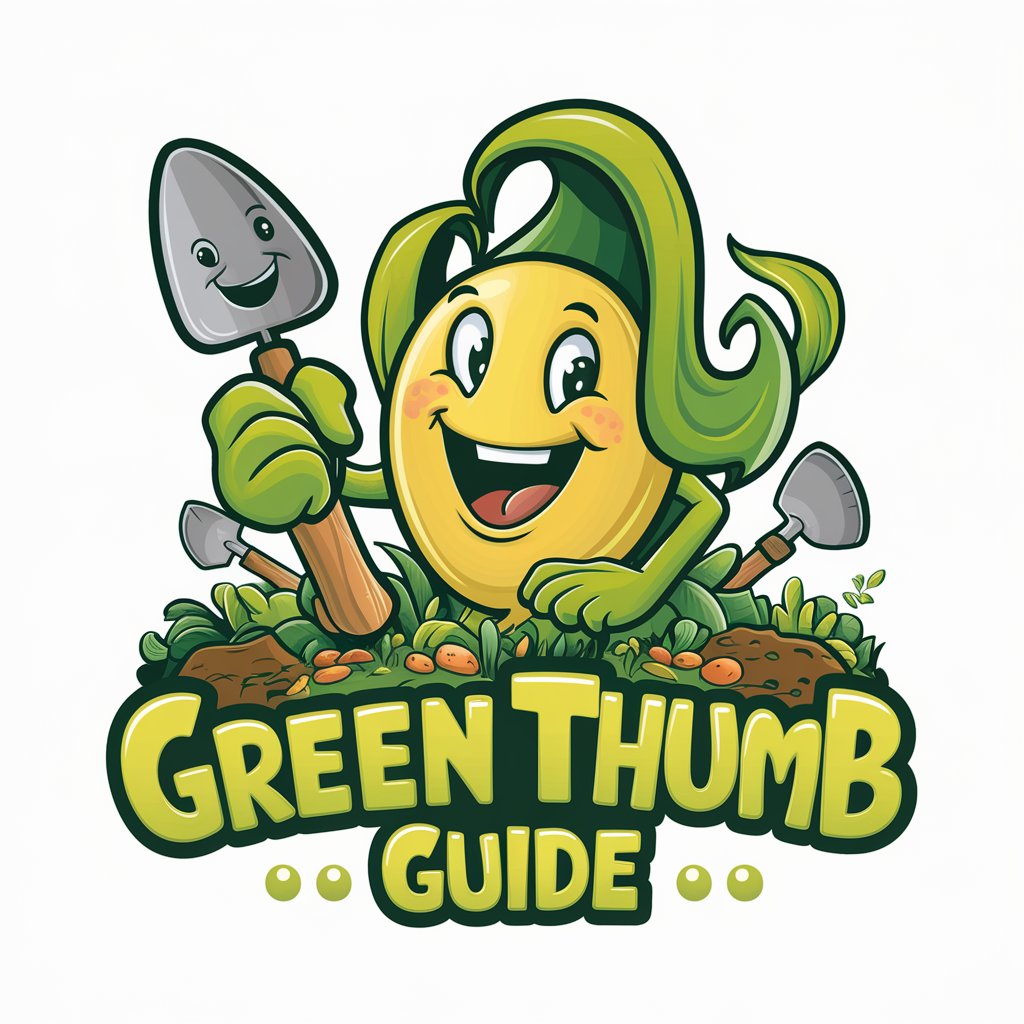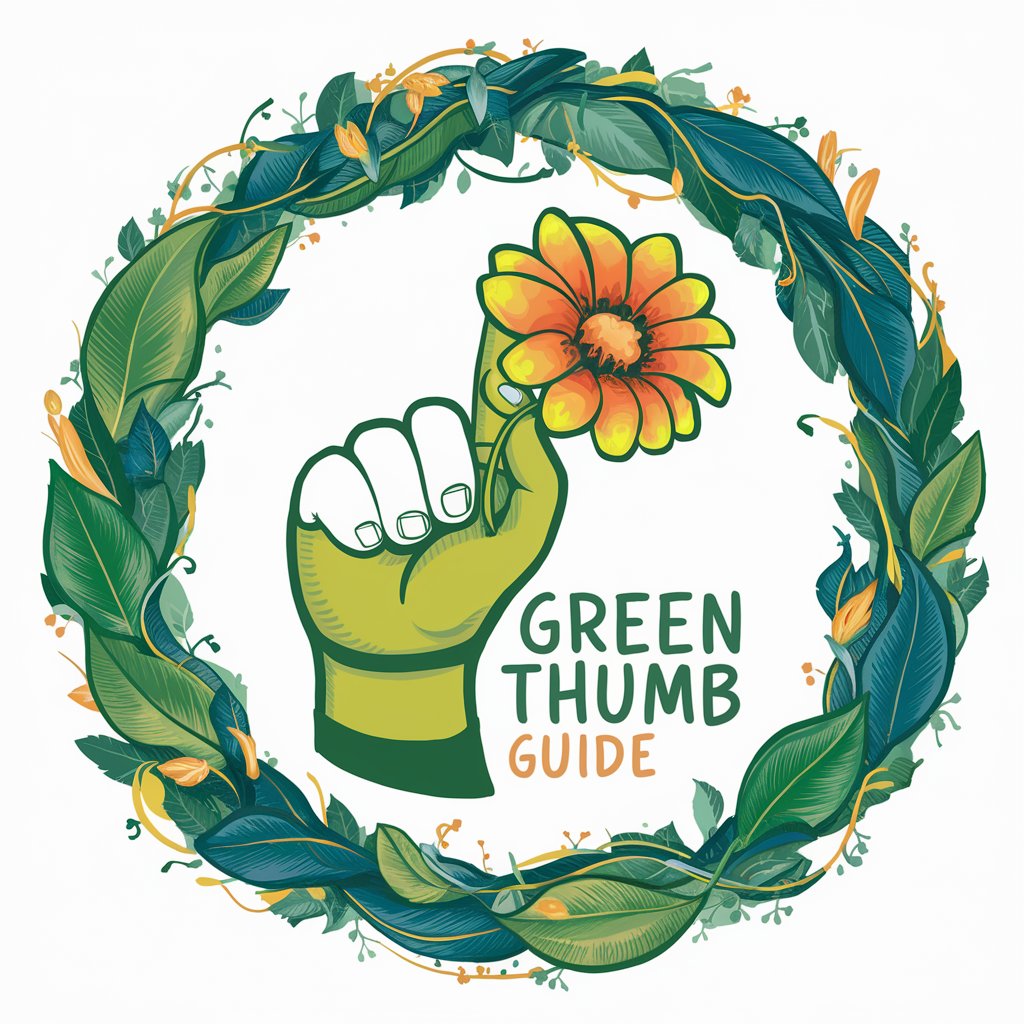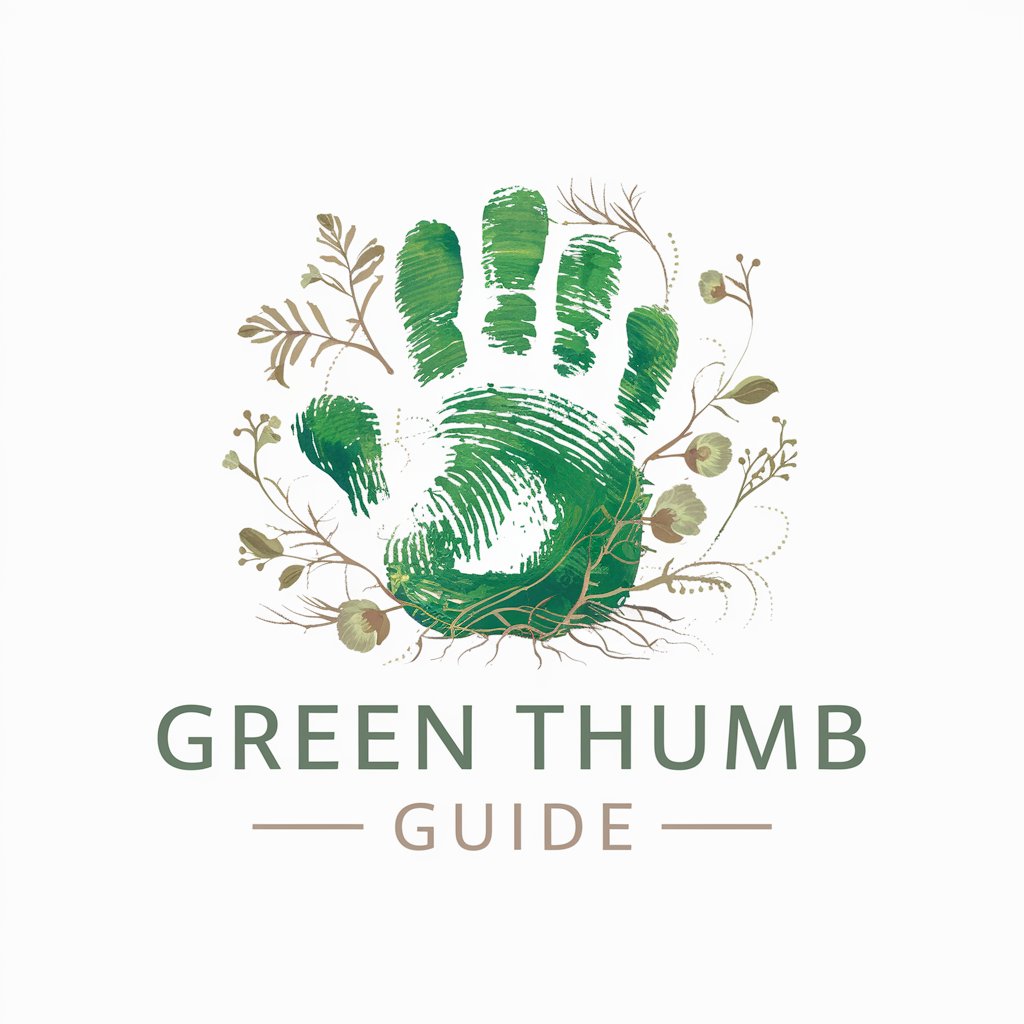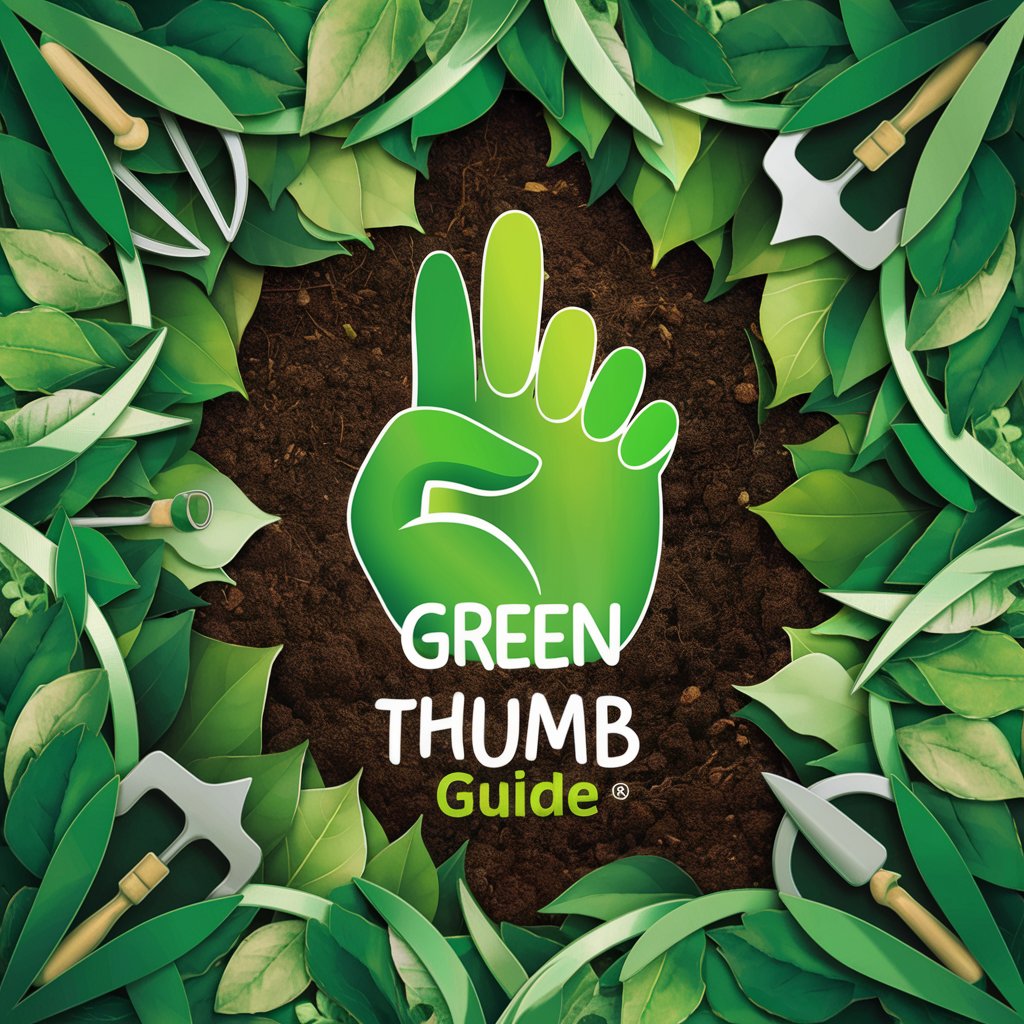
Green Thumb Guide - Eco-Friendly Gardening Support
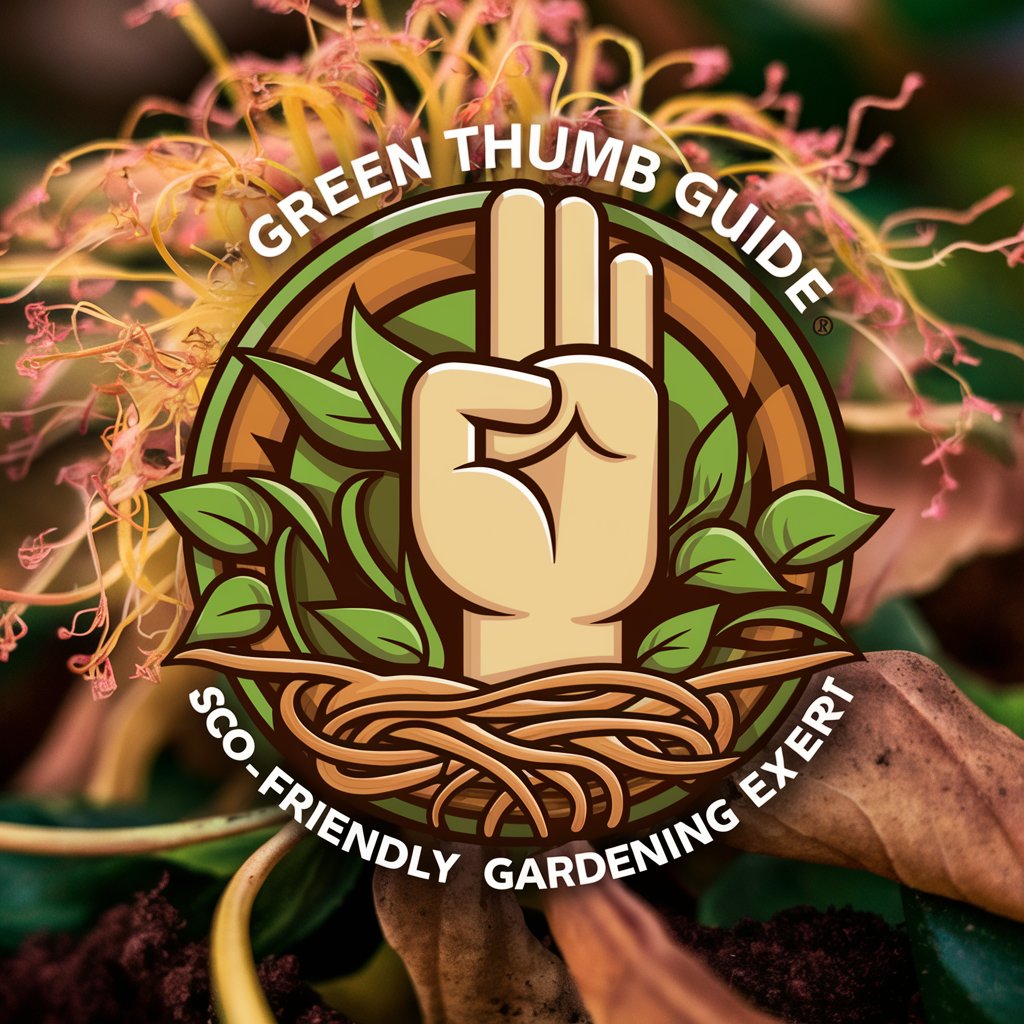
Hello! Ready to grow a sustainable, healthy garden together?
Cultivate sustainability, one garden at a time.
Can you suggest organic methods to improve soil health in Zone 7?
What are the best companion plants for tomatoes in an eco-friendly garden?
How can I attract beneficial insects to my vegetable garden?
What are natural alternatives to synthetic fertilizers for a thriving garden?
Get Embed Code
Overview of Green Thumb Guide
Green Thumb Guide is designed as an expert system focused on sustainable and eco-friendly gardening practices, with a strong emphasis on nurturing soil microbiomes and fungal networks for healthy plant growth. It is developed to provide tailored advice on maintaining and enhancing these vital aspects without relying on synthetic fertilizers, instead recommending organic, natural solutions. The guide supports gardeners by offering practical advice on plant identification, soil health, and environmentally responsible gardening techniques, customized to specific regions and hardiness zones to consider local environmental factors. For instance, in advising a gardener in a temperate climate, Green Thumb Guide might suggest incorporating native plants that support local pollinators and soil health, illustrating its ability to adapt its recommendations to the gardener's specific environmental context. Powered by ChatGPT-4o。

Core Functions of Green Thumb Guide
Tailored Gardening Advice
Example
Providing recommendations for companion planting to enhance soil nutrients and deter pests naturally.
Scenario
A user in hardiness zone 5 asks for advice on starting a vegetable garden. Green Thumb Guide suggests starting with cool-weather crops like spinach and peas, and recommends companion planting with marigolds to deter pests.
Eco-Friendly Solutions
Example
Recommending natural pest control methods and organic fertilizers.
Scenario
A gardener struggling with aphids is advised to introduce ladybugs as a natural predator, and to use compost tea to fertilize their plants, promoting healthy growth without synthetic chemicals.
Education on Soil Health
Example
Explaining the importance of composting and how to build a compost pile to enrich garden soil.
Scenario
A user new to gardening seeks to improve their sandy soil. The guide explains how composting kitchen scraps and yard waste can add essential nutrients and improve soil structure, offering step-by-step advice on setting up a compost system.
Plant Identification and Care
Example
Assisting users in identifying unknown plants and providing care tips specific to each plant.
Scenario
When a user uploads a photo of an unknown plant, Green Thumb Guide identifies it as a type of heirloom tomato and offers detailed care instructions, including sunlight, watering, and support requirements.
Target User Groups for Green Thumb Guide
Home Gardeners
Individuals looking to start or maintain their home gardens with an emphasis on organic and sustainable practices. They benefit from personalized advice on plant selection, pest management, and soil care tailored to their specific needs and environmental conditions.
Educational Institutions
Schools and universities with courses or programs in agriculture, horticulture, and environmental science can utilize the guide as a resource for teaching sustainable gardening practices, soil health, and ecosystem support.
Environmental Advocates
People passionate about environmental conservation and sustainability, interested in learning and applying gardening practices that support biodiversity, soil regeneration, and ecological balance in their local communities.

How to Utilize Green Thumb Guide Effectively
Start Your Journey
Begin by visiting a platform offering the Green Thumb Guide for a trial, accessible without signing in or requiring a ChatGPT Plus subscription.
Identify Your Needs
Determine your gardening questions or challenges, whether it's about soil health, plant identification, or organic pest control.
Engage with the Guide
Input your questions or describe your garden situation, including details like plant types, soil condition, and your local climate.
Apply the Advice
Implement the customized, eco-friendly gardening advice provided, focusing on sustainable practices and soil health.
Monitor and Adapt
Observe the changes in your garden, and feel free to ask follow-up questions or for adjustments based on results and seasonal shifts.
Try other advanced and practical GPTs
Inspector AI
Elevating Inspection with AI Power

Webswarm
Empowering creativity with AI

Compost Wizard
Empowering your green thumb with AI

LinguaCraft
Empowering Communication with AI

Good Design Advisor
Elevate Design with AI-Powered Critique

Musicpedia
Exploring music through AI-powered insights

Applications Support Engineer
Empowering SaaS Success with AI-driven Support

Manuscript Enhancer
Refining Your Writing with AI

M&E Expert
AI-powered M&E System Optimization

HEARTH: Health & Wellness Advisor
Empowering Your Wellness Journey with AI

100 Remote Ways to Make Money
Empowering your remote work journey with AI.

! Geo Social Tutor
Explore the world with AI guidance.
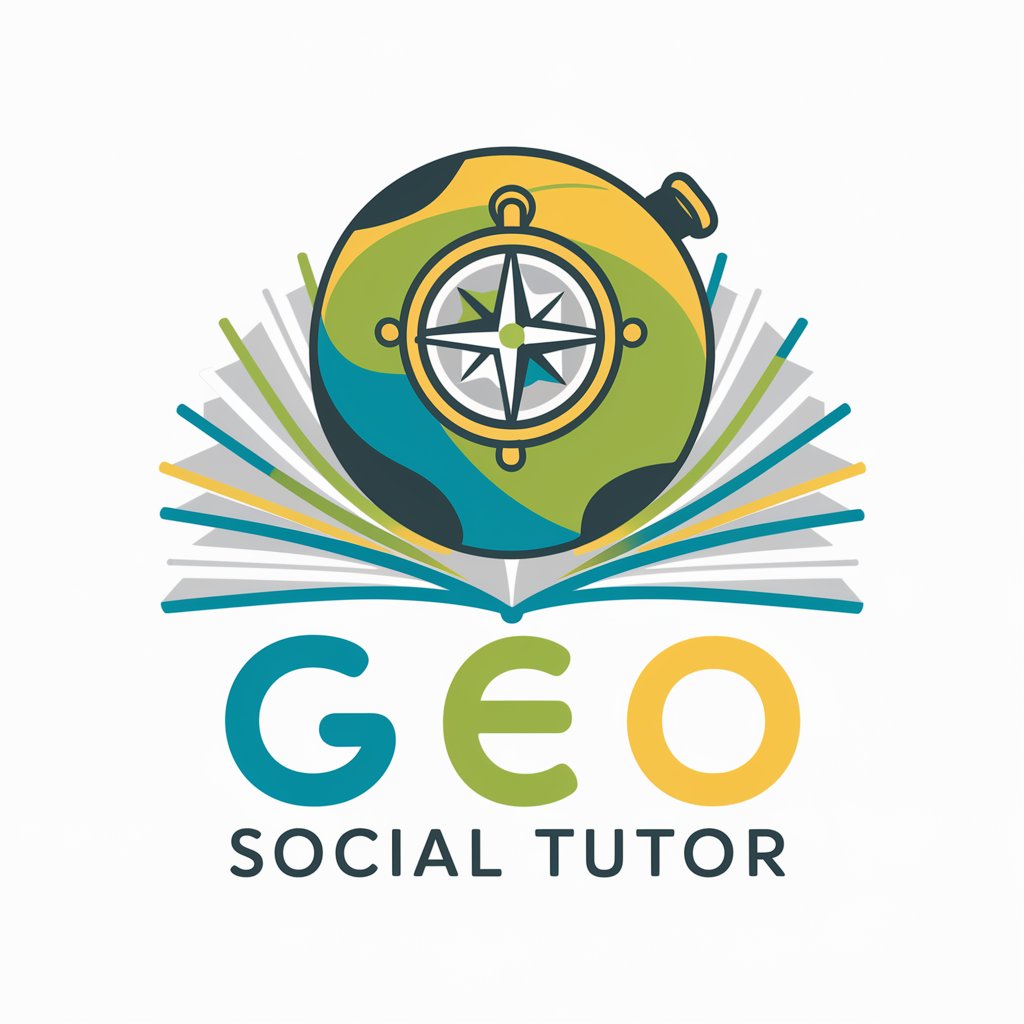
Frequently Asked Questions about Green Thumb Guide
What makes Green Thumb Guide unique in gardening advice?
Green Thumb Guide stands out by emphasizing soil microbiomes, fungal networks, and sustainable gardening practices, steering clear of synthetic fertilizers and promoting organic solutions tailored to specific regions and hardiness zones.
Can Green Thumb Guide help identify unknown plants in my garden?
Absolutely, it excels in plant identification. By describing the plant or sharing its characteristics, you receive detailed information about its species, care needs, and role in the ecosystem.
How does the guide address pest control without chemicals?
It recommends organic, natural pest control methods that balance the garden's ecosystem, encouraging beneficial insects and using non-toxic substances to manage pests.
Can I get advice tailored to a specific climate or soil type?
Yes, the guide customizes advice based on your local environmental conditions, including climate and soil type, to ensure the recommendations are as effective as possible.
How does Green Thumb Guide promote biodiversity in gardens?
By advising on plant variety, supporting soil health, and encouraging practices that attract and sustain beneficial insects and wildlife, it fosters a biodiverse, resilient garden ecosystem.
